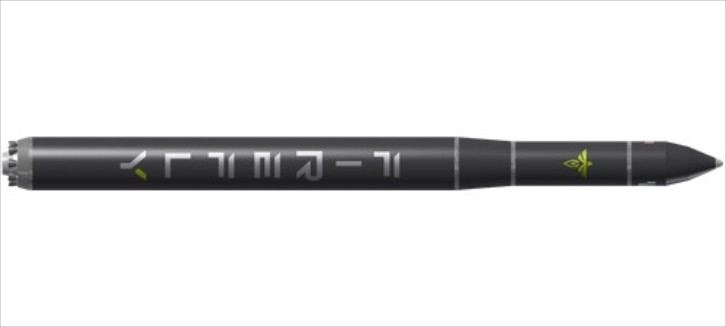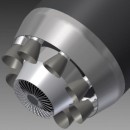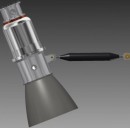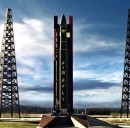Private aerospace company FireFly Space Systems has revealed the design of their newest creation, the FireFly Alpha. The next generation vehicle aims to launch lightweight satellites for the cheapest prices on the market.
The two-stage vehicle uses liquid oxygen and methane propellants in pressure-fed configurations, and might just be SpaceX’ future competitor. Based in Austin, Texas, the startup vehicle developer FireFly Space Systems claims the vehicle will be able to place up to 400 kilograms into low Earth orbit.
Founded in January, the company has former SpaceX and Virgin Galactic employees on staff. Their mission is to reduce costs for lighter loads, such as constellations of small satellites used for communications networks or monitoring Earth.
“We are offering small satellite customers the launch they need for a fraction of that, around $8 or 9 million – the lowest cost in the world,” claimed Firefly CEO Thomas Markusic in a company press release.
Simplified and optimized for least cost, and utilizing innovations such as a rethought engine design, FireFly has positioned itself to be the technological and cost effective solution for traditional manufacturers of small satellites for government agencies and earth observation customers. Well, at least this is what its creators claim of themselves.
And how much cheaper this vehicle is? Well, it depends on the company we look at. According to NewSpaceJournal, Orbital Sciences Corporation’s Pegasus XL can launch payloads weighing as much as 992 lbs (450 kg), but with estimated costs of $30 million or more per launch.
However, it’s important to also think off Elon Musk’s similar plan with SpaceX’s Falcon 1. The vehicle had a similar payload performance, about 992 lbs (450 kg) at an original cost of about $6 to $7 million. But, according to the source, the company struggled to win business for the Falcon 1 at those prices, even after the vehicle got past its initial development struggles, and SpaceX chose to retire it and focus on larger models.
Meanwhile, SpaceX Dragon V2 will soon take astronauts to space and back, as the the craft is able to be used in several travels. After all, you never now what Elon Musk's next step is.
Founded in January, the company has former SpaceX and Virgin Galactic employees on staff. Their mission is to reduce costs for lighter loads, such as constellations of small satellites used for communications networks or monitoring Earth.
“We are offering small satellite customers the launch they need for a fraction of that, around $8 or 9 million – the lowest cost in the world,” claimed Firefly CEO Thomas Markusic in a company press release.
Simplified and optimized for least cost, and utilizing innovations such as a rethought engine design, FireFly has positioned itself to be the technological and cost effective solution for traditional manufacturers of small satellites for government agencies and earth observation customers. Well, at least this is what its creators claim of themselves.
And how much cheaper this vehicle is? Well, it depends on the company we look at. According to NewSpaceJournal, Orbital Sciences Corporation’s Pegasus XL can launch payloads weighing as much as 992 lbs (450 kg), but with estimated costs of $30 million or more per launch.
However, it’s important to also think off Elon Musk’s similar plan with SpaceX’s Falcon 1. The vehicle had a similar payload performance, about 992 lbs (450 kg) at an original cost of about $6 to $7 million. But, according to the source, the company struggled to win business for the Falcon 1 at those prices, even after the vehicle got past its initial development struggles, and SpaceX chose to retire it and focus on larger models.
Meanwhile, SpaceX Dragon V2 will soon take astronauts to space and back, as the the craft is able to be used in several travels. After all, you never now what Elon Musk's next step is.





